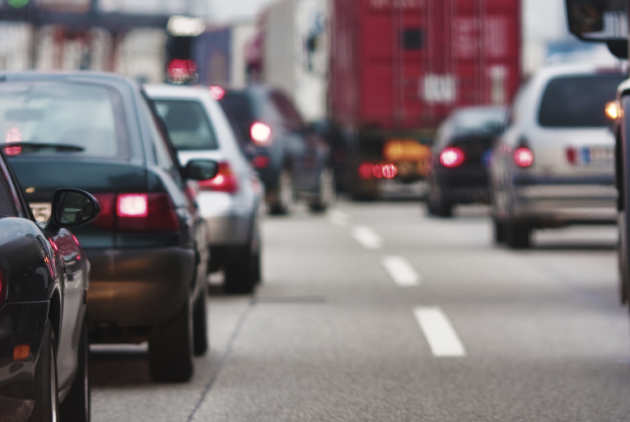Topics: Mitigation
Type: Briefing paper
Publication date: October 2010
Download
Summary
Authors: Dr David Howey, Dr Robin North and Dr Ricardo Martinez-Botas
 Cumulative global carbon dioxide (CO2) emissions between now and 2050 will strongly influence the extent of climate change by the end of this century. Transport alone was responsible for around 23% of global energy-related CO2 emissions in 2007. Transport emissions could become even more significant as other sectors are decarbonised. The UK has committed to an 80% reduction in greenhouse gas (GHG) emissions by 2050. We therefore need as a matter of urgency to develop policies, technologies and infrastructure for the future delivery of transport services that are consistent with national and global emissions reduction goals.
Cumulative global carbon dioxide (CO2) emissions between now and 2050 will strongly influence the extent of climate change by the end of this century. Transport alone was responsible for around 23% of global energy-related CO2 emissions in 2007. Transport emissions could become even more significant as other sectors are decarbonised. The UK has committed to an 80% reduction in greenhouse gas (GHG) emissions by 2050. We therefore need as a matter of urgency to develop policies, technologies and infrastructure for the future delivery of transport services that are consistent with national and global emissions reduction goals.
Alternative, low-carbon fuel and energy sources and new powertrain technologies will be essential. Barriers to achieving global mitigation targets in transport are significant, and include the embryonic technological state of low-carbon alternatives, the likely rapid increase in the use of vehicles in developing economies, and the dependence of low-carbon vehicles on the still-evolving decarbonised energy supply and associated infrastructure.
The main focus of this paper is on how we can rapidly reduce emissions from vehicles with conventional powertrains and dramatically reduce the GHG intensity of fuels and accelerate the transition to lowcarbon vehicles .
Contents
- Executive summary
- Introduction
- Technical review
- The UK technological transition path
- Policy and economic context
- Research agenda
- Conclusion
View publications by:
Topic
Climate Science
Earth and Life Sciences
Energy and Low-Carbon Futures
Resources and Pollution
Economics and Finance
Health
View all publications and browse by year
Publication type
Briefing papers and Briefing notes
Grantham Institute Outlooks
Evidence & submission papers
Infographics
Institute reports and analytics notes
Grantham notes
Collaborative publications
Discussion papers
Institute event overviews
Working papers